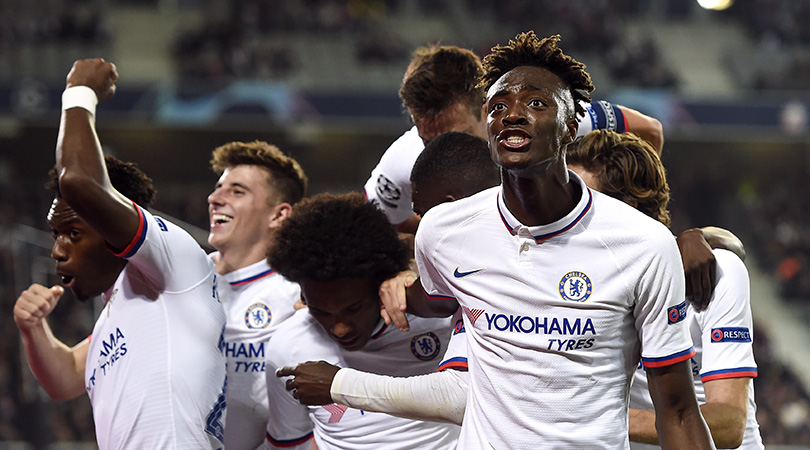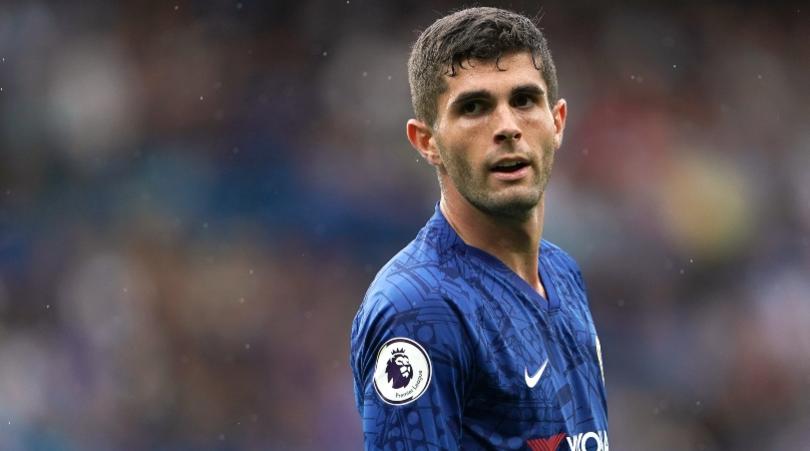Why Tammy Abraham's rise is about far more than being in the right place at the right time
The Premier League's top-scoring Englishman is back in the Three Lions squad and ready to keep his place for good – testament to qualities off the pitch as well as on it

Eight goals from seven Premier League starts has returned Tammy Abraham to the England squad. Two years on from receiving his first international caps, in friendlies against Brazil and Germany in which he looked coltish and out of place, Abraham is back – and deservedly so.
So how good is he now and what calibre of player might he become?
Really, those are the wrong questions to ask. If Abraham's rise is an example of anything, it’s that the initial judgement of a player can so often be reductive and misleading. At the very least, it shows the error of considering him to be a what, rather than a who.
At the time of his first call-up, Abraham was on loan at struggling Swansea. He had some good moments that season and, periodically, flashed some of the skill and instinct that he’s now exhibiting more regularly. But those weren't substantive hints. That is to say that nobody who watched him regularly that year - or even last season at Aston Villa - would have been convinced that he was destined to lead Chelsea's line.
And that represents a great failing: the habit of forming rough sketches of players from initial impressions, but then remaining completely loyal to that vague image. Abraham's touch was too loose. He wasn't composed enough in front of goal. He didn't use his body well enough. Because judgement was - and is always - made so quickly, those imperfections weren't seen as temporary. Worse, they were observations made at the expense of recognising that it is a player's personality which gives his career its definition. Physical and technical attributes are important, but they are never the sum total of a young player's worth.
Back in 2017, off the back of a fine Championship season with Bristol City, Abraham travelled to Poland with England’s under-21s for the European Championship. He had a decent if unspectacular tournament, but what endured was not how he played, but how he came across in person and how he was spoken of by his team-mates.
Abraham was engaging throughout, regardless of whether he was playing well or not. Post-match mixed zones are usually quite sterile environments, full of banality and that painful shyness which comes with being young and under constant scrutiny. But he was a contrasting figure. Not because of what he said, but rather how he spoke: with an intelligence and optimism which left a lasting impression. He was impressive. He listened to questions and answered them thoughtfully and, unfortunately, that's unusual enough to stick in the mind. Talking to him wasn't a chore.
Get FourFourTwo Newsletter
The best features, fun and footballing quizzes, straight to your inbox every week.
At one of the media events that took place on a tournament rest day, Nathaniel Chalobah - who was captaining the side - was asked about Abraham. He just smiled at the question and laughed softly, away from the microphone. They were club-mates at the time – Chalobah would leave for Watford a few months later – and he described someone with a real affection for football. In fact, if memory serves, he said that he’d never met anyone who was so enthusiastic about the game or who loved it quite so much.
Some of that would have been youth, of course, but Abraham’s core personality presumably remains relatively unchanged and likely helps to explain his rapid ascension.
Partly, his current place is attributable to luck. It was his good fortune, of course, that Chelsea were under a transfer embargo this summer and that they’re now under the direction of a head-coach who places great emphasis on homegrown players. Nevertheless, these last few months have also spoken highly of his ability to digest his time in the Premier League. Another fallacy is that exposure always breeds improvement and that players evolve just by being on the pitch. Really, that’s a pre-requisite: players have to play. What seems to determine their growth is whether they possess the dexterity to adapt around their experiences. Can they cope with failure? Can they use it? Does their relationship with the sport allow them to better their own place within it?
When a player does have those hidden abilities, his development can be very dramatic. Not always, but sometimes. He begins to show traits he was presumed not to have and do things on the field which were thought to be beyond him.
And that describes Abraham’s career really well at the moment. The curve will flatten out in time, but, for now, every week seems to be revealing something new. A different type of goal, or a slightly slicker interchange with a team-mate. There are other ways of explaining that – growing team chemistry and confidence – but at root lies that nest of characteristics shared by all the players who become much more than they appeared at first glance.
While you're here, why not take advantage of our brilliant subscribers' offer? Get 5 issues of the world's greatest football magazine for £5 – the game's greatest stories and finest journalism direct to your door for less than a pint in London. Cheers!
NOW READ...
QUIZ! Can you name all 31 players to score their first ever Premier League goal this season?
LIST 11 of the easiest title wins in English football history
WATCH Premier League live stream 2019/20: how to watch every game from anywhere in the world
Seb Stafford-Bloor is a football writer at Tifo Football and member of the Football Writers' Association. He was formerly a regularly columnist for the FourFourTwo website, covering all aspects of the game, including tactical analysis, reaction pieces, longer-term trends and critiquing the increasingly shady business of football's financial side and authorities' decision-making.

